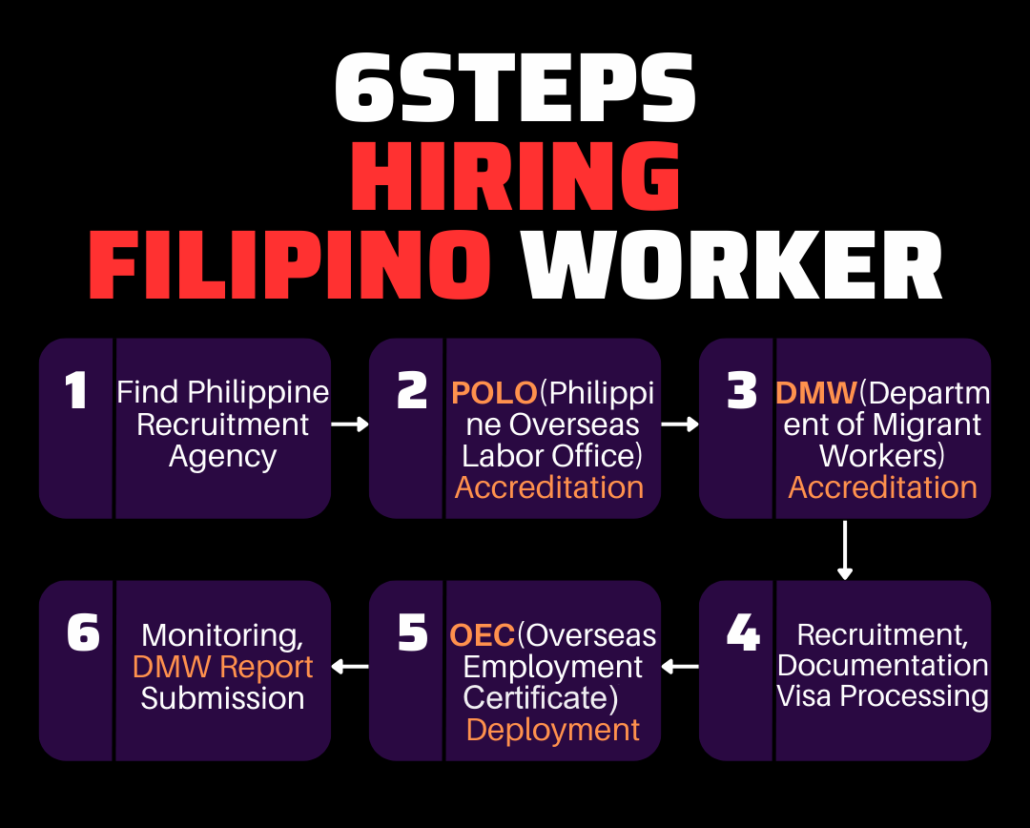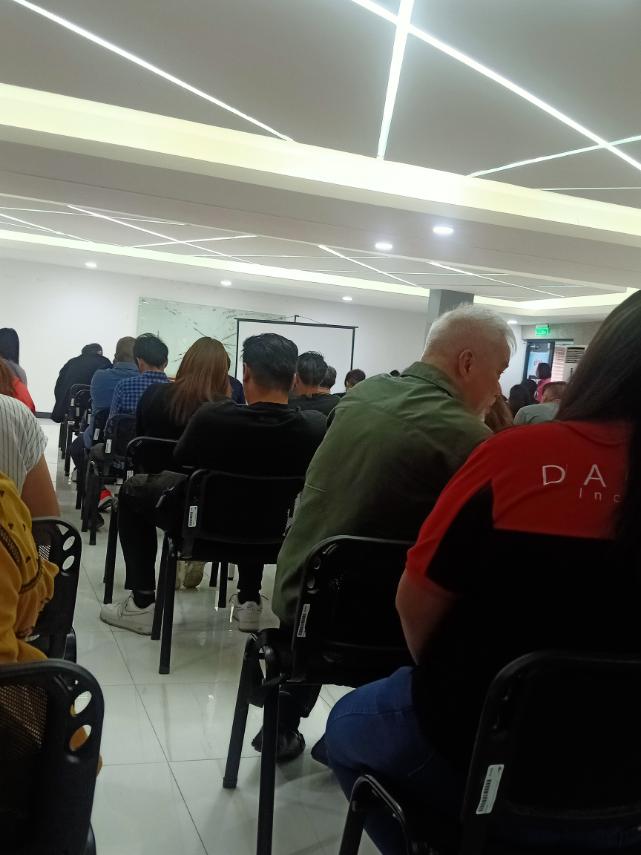Hiring Local Filipino Employees to Work Overseas: A 6-Step Process
Filipino professionals are employed across diverse sectors globally. When recruiting Filipino workers to operate abroad instead of hiring from their home country with a formal visa, it’s imperative to adhere to specific processes mandated by the Philippine government. These protocols serve to oversee critical concerns like labor exploitation and the unlawful migration of Filipino workers. In this article, we delve into the procedures for recruiting local Filipino talent for international roles.
Please be advised that the following describes a general regulatory process that may vary according to country and sector-specific guidelines.

When seeking to hire Filipino workers from abroad, the first step is to engage a manpower agency located within the Philippines. Unless the potential employee already holds a valid working visa within the destination country, Philippine law requires the use of an in-country recruitment firm to facilitate international placement.
By regulation of the Philippine government, all overseas employment of Filipino citizens must be processed through officially licensed manpower agencies. This policy aims to protect workers from potential exploitation or unfair treatment when working abroad.
Prospective employers should thoroughly research available manpower agencies to identify reputable, experienced firms permitted under Philippine Overseas Employment Administration rules. The recruitment process, paperwork and placement fees are fully managed by the selected agency in close coordination with relevant Philippine government bodies and counterpart agencies in the hiring country.
Migrant Workers Office(Formerly Philippine Overseas Labor Office) Approval Process
Migrant Workers Office (MWO) plays an important role in the employment of Filipino workers abroad. As an affiliate of the Philippine Embassy, MWO functions as an overseas labor department serving Filipinos working internationally.
Any company seeking to hire Filipino employees must submit a job order and supporting documentation to the local MWO office with jurisdiction over the employment country/location. The job order outlines the job title, responsibilities, minimum qualifications, salary and benefits being offered. It is accompanied by documents establishing the legitimacy and financial standing of the hiring company.
Upon receipt, MWO staff will carefully review the submission for completeness and compliance with Philippine overseas employment policies and protections. This ensures Filipino workers are being recruited for real jobs of meaningful work under fair and lawful terms. Companies can expect an inspection of their foreign operations as part of the vetting process.
DMW approval process
DMW (Department of Migrant Workers) is a newly launched agency that takes over the functions previously handled by POEA (Philippine Oversea Employment Administration). All tasks of POEA have been transferred to DMW.
MWO-approved documents must be delivered to the Philippine overseas sending company for approval by the DMW (Philippine Department of Migrant Workers).
If approved, the job order is circulated to licensed Philippine overseas employment agencies. The hiring process can then commence with qualified Filipino applicants evaluated and matched to the positions.
Recruitment and Visa Process
Once approval is received from the Department of Migrant Workers, the recruitment and hiring phase can commence. Potential applicants’ resumes may be obtained through partner Philippine manpower agencies. Initial interviews of candidates can then be conducted either remotely via online or through an in-person visit to the Philippines, depending on the employer’s preferences. Any applicants who meet the job requirements and perform well during the interview will then advance to the next stages of the process.
Medical examinations will be administered to confirm that the candidate is physically capable and in good health for the position and duties. Upon receiving clearance, the visa application paperwork can be initiated. This involves submitting documents such as the employment contract, background and educational verifications, and medical reports to the Philippine Overseas Employment Administration for certification. With their approval, the documents will then be filed with the Bureau of Immigration to request the appropriate working visa type for the candidate to travel and work abroad.

Overseas Employment Certificate and Departure Process
Once a prospective overseas Filipino worker has secured employment through a registered Philippine manpower company, they will be issued an Overseas Employment Certificate (OEC) by the Department of Migrant Workers (DMW). The OEC serves to validate and document the overseas employment contract.
With the OEC in hand, the manpower company will then facilitate the worker’s departure from the Philippines.
Prior to their flight, all outgoing workers are required to attend a pre-departure orientation seminar administered by their employing manpower company. These seminars aim to prepare the individuals for their overseas assignment by providing important information on foreign employment regulations, culture shock, financial literacy, and how to respond in emergency situations. The pre-departure briefing helps ease the transition to life and work abroad.
Monitoring and Reporting
From the time of arrival to a foreign country, manpower agencies have mandatory reporting requirements required by the Department of Migrant Workers (DMW) of the Philippine government. Agencies must submit status reports detailing information such as the employees’ welfare conditions, employment details, and other pertinent data points.
In summary, close monitoring of deployed workers and adherence to reporting standards are mandated throughout the recruitment and overseas employment process managed by Philippine manpower agencies. Strict documentation protocols must be followed to ensure on-time placement of qualified Filipino human resources with Korean companies.



Leave a Reply
Want to join the discussion?Feel free to contribute!